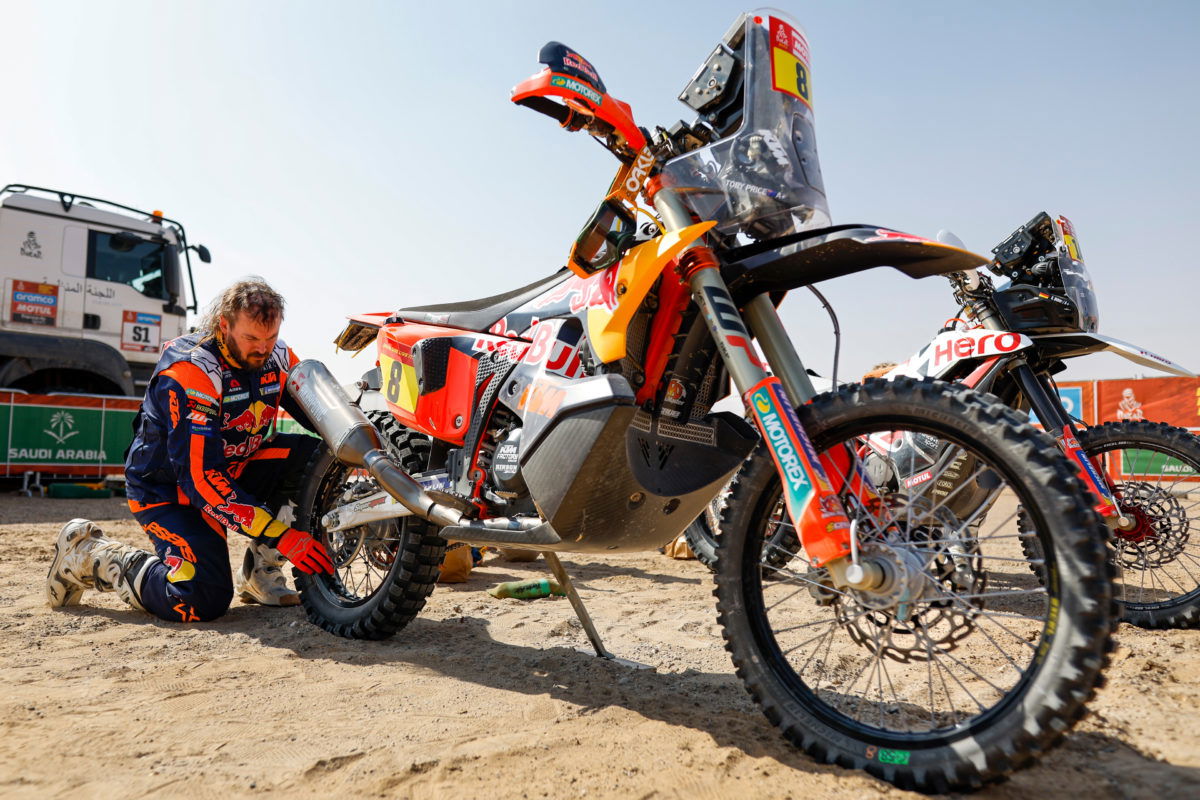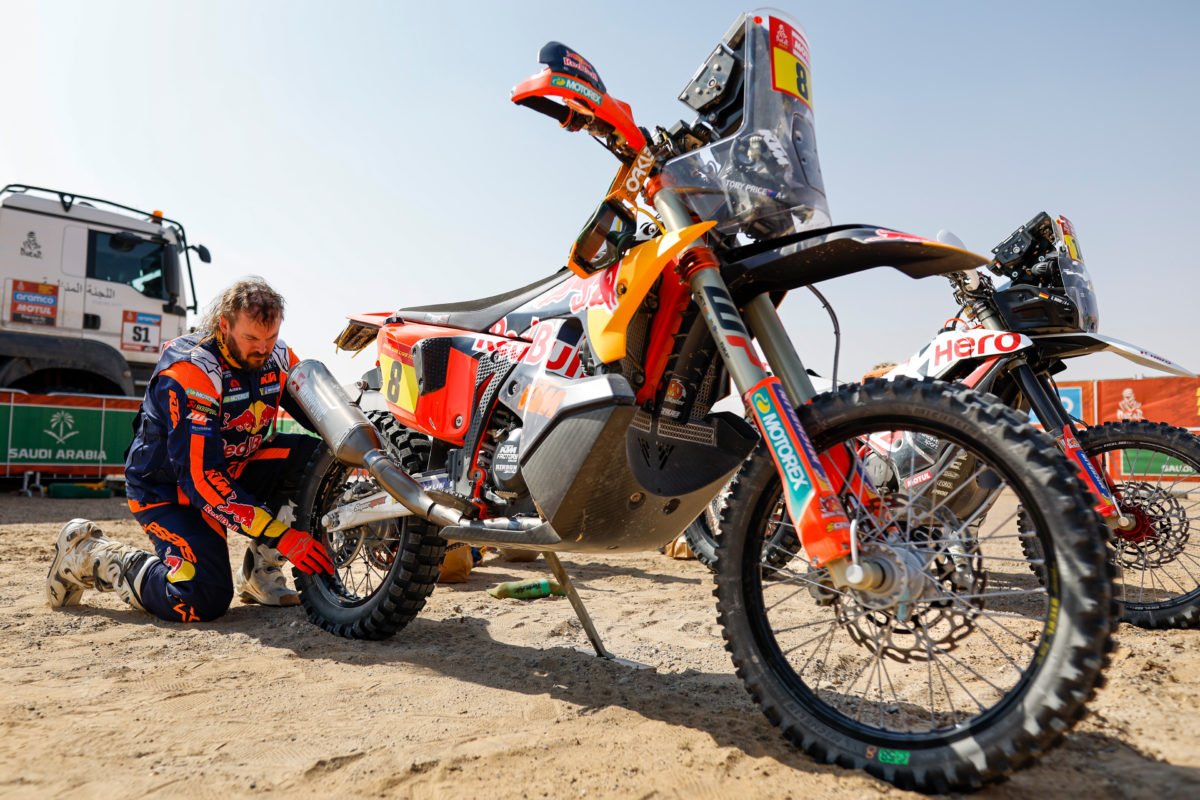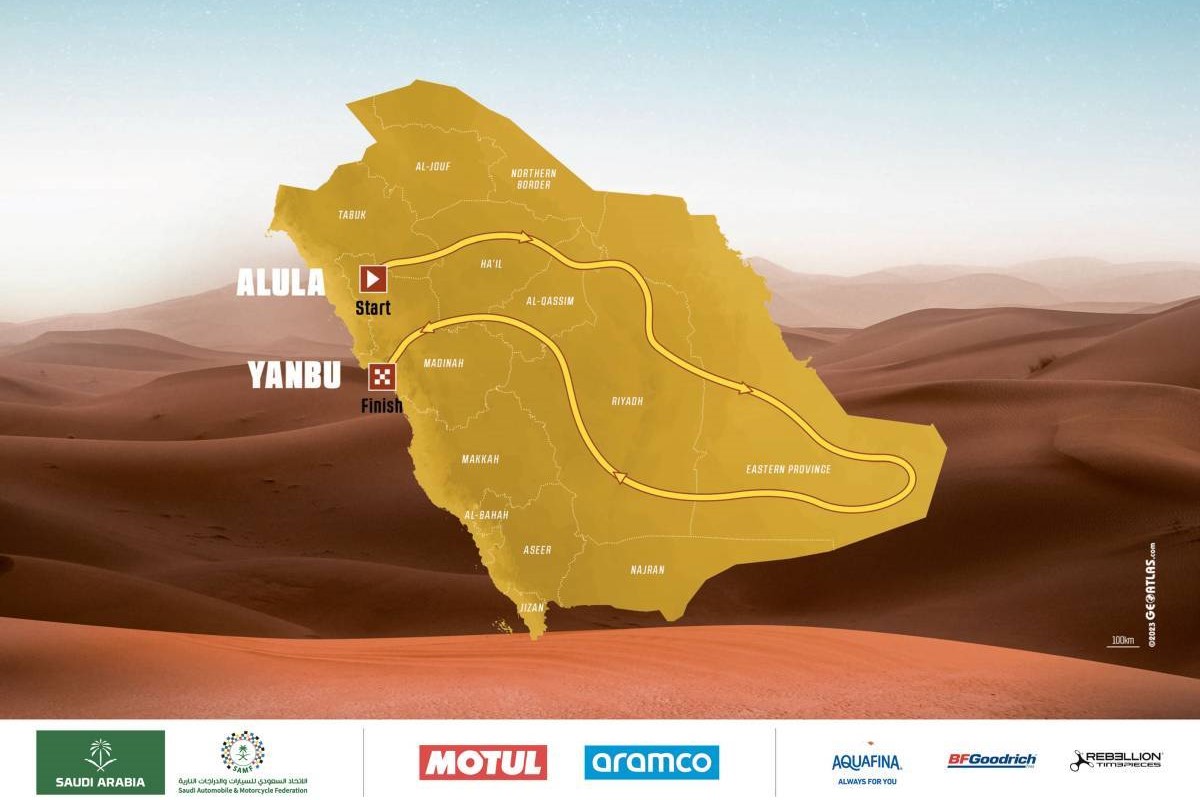

The 2024 Dakar Rally will feature an even longer marathon leg, which organisers have dubbed the ’48-hour stage’.
Dakar 2024, the fifth edition of the world’s blue riband rally-raid event to be held in Saudi Arabia, will start on January 5 and finish on January 19 with a prologue and 12 stages totalling 14 days of racing along the way.
One of those stages, however, will span two days in an evolution of the ‘Marathon’ format which prohibits competitors from receiving assistance from support crews along the way.
Essentially, the stage will be paused one afternoon before resuming the next morning, and competitors will have little to no knowledge of how their rivals are performing.
“This is a new stage format, contested over two days with the constraints of a marathon stage, although competitors are permitted to help each other during the evening,” read an announcement from Dakar organisers.
“But this time, there will be no choice of canteen or repair companions, as the drivers and crews will be spread out over eight different bivouacs.
“When the clocks strike 4pm, all vehicles will be required to stop at the next bivouac they come across.
“With no connection and therefore no visibility of their rivals’ performances, the competitors will camp and set off again at 7am the following day to complete the remaining section of the route.
“The tally will be counted after around 600 kilometres of special stage.”
The 48-hour stage will take place in Saudi Arabia’s so-called Empty Quarter, and the challenge will be even greater than usual for those in closed cockpits.

Motorbikes/Quads will be sent on one route and Cars/Trucks on another, meaning the latter contingent will not be able to follow the tracks left by the former as they otherwise would.
Next year’s route will take in about 5000km of special stage (ie competitive) running, from one side of the country to the other and back.
Starting in AlUla and finishing in Yanbu, on the shores of the Red Sea, competitors will take in a journey which is said to be 60 percent all-new.
As usual, however, full details will be announced closer to the event.
The system of opener bonuses which was introduced in Dakar 2023 for the Bikes will remain, while there will be a new non-competitive ‘Mission 1000’ class for machinery by “the most innovative technologies in the field of decarbonisation”.
Vehicles will be those powered by hydrogen, fully electric, or hybrid with “a minimal amount of biofuel on board”, which will run each day on a separate 100km route.
“Although Mission 1000 participants will eventually be entered into a real competition, initially, they will be invited to participate in a full-scale test, allowing carmakers to gather as much information as possible,” advised Dakar.
“However, their performance in terms of technical reliability, energy consumption and carbon footprint will be assessed by a panel of experts.”
Around 10 entries, across Cars, Bikes, and Trucks, are expected to take part.
Kevin Benavides beat Red Bull KTM Factory Racing team-mate Toby Price to this year’s Dakar Bikes victory by 43 seconds, while Toyota Gazoo Racing’s Nasser Al-Attiyah steady effort in the Cars saw him take a fifth crown.
VIDEO: Dakar 2024 route





















Discussion about this post